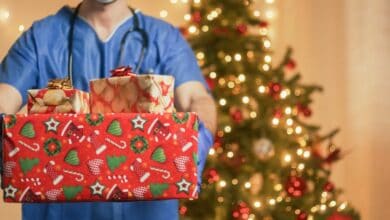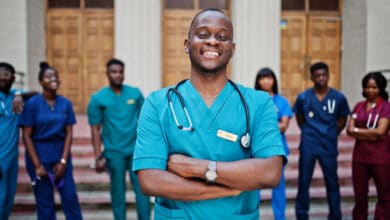My parents are doctors – both oncologists to be precise. They met, fell in love, and married all while working together in Seattle’s Veterans Affairs Medical Center. Their careers diverged, but their profession remained the same and provided the medicine-saturated environment in which I grew up. ||Read Emily’s Path Part 3||
Over twenty years ago, my father left his job as a medical professor at the University of Washington to start a biotechnology company that studies cancer therapies. My mother is still a Professor of Medical Oncology at the University of Washington and runs clinical research, frequently working on clinical trials sponsored by drug companies like my father’s. Though they no longer work together, they are both still on the front lines of cancer research.
Though my parents work very hard and frequently travel, dinner was sacred when I was growing up, and we always ate together as a family. Table conversations revolved around medical literature, clinical presentations, and patient personalities; medical jargon was common fodder. I spent car rides silently listening to my mother coordinate treatment of patients with her nurse on the car phone. As a kid I had the opportunity to accompany both parents in their workplaces – my father to his office and laboratory, and my mother to the hospital, outpatient clinic, and patients’ homes. I got to see the day-to-day of trained physicians in different fields, and personally experienced the dynamics and lifestyle of a physician family.
Before I could really think about it, I knew what it meant to our community that my parents were both physicians. Family, friends, and distant acquaintances contacted us with questions about their diagnoses. My mother helped coordinate their care, and as a family we consoled friends that had lost loved ones. When my best friend’s father (who spoke no English) was diagnosed with stomach cancer in New Jersey, my parents contacted colleagues to see him at Memorial Sloan Kettering in New York; when my boyfriend’s stepfather was diagnosed with terminal lung cancer, my mom attempted to get him enrolled in a clinical trial.
Growing up around this, I learned that medicine is a profession that pervades lifestyle. Once you are a doctor you become an authority on life, death, and health. I have already mentioned life and health, but part of growing up in a physician family (particularly a family of oncologists), was living with death.
As you might expect, we attended many memorial services for patients. What may surprise you is that my mother actively surrounds herself with non-patients who are terminally ill. It became a running (and rather morbid) joke in my family that my mother “collects” old ladies. To be more precise, she gravitates towards those patients who are nearing death. I believe that my mother’s interest in the ailing stems from her dedication to ensuring that death occurs with dignity and grace. Thus, by virtue of my parents’ profession, I was exposed to compassionate end-of-life care, where unnecessary therapies that might prolong suffering were avoided, and people died at home per their own wishes, surrounded by loved ones.
Though my early exposure to medicine might appear to be an asset, it was actually a complication when I was applying to medical school. Like everybody else I had to demonstrate my commitment to the profession through a high science GPA, MCAT score, clinical experience, research, and volunteering. I had to have a strong personal statement and secondary essays, and I additionally had to overcome the assumption that I was simply following in the footsteps of my parents.
||Read 5 Parts of a Competitive Medical School Application||
In fact, my parents encouraged me to explore other fields and took pride in my Economics & Russian majors, my travel abroad, and interest in policy. Though in many ways I was actively searching for a professional fit outside of medicine, I found that I was returning to it in every exploration of a non-medical field: I researched health outcomes when I was learning Soviet Union history, and I studied the economics of health improvements in developing countries in my major dissertation. After I graduated Stanford, I investigated drug safety at a policy-consulting firm and researched infection in Medicare and Medicaid patients. Every step took me closer to medicine, and in the end I realized that I wanted to be the person with the specialized knowledge to provide care rather than the analyst studying clinical outcomes.
My parents played an integral role in my decision to pursue medicine, but not because they pressured me into it. Rather, my parents exposed me to the rigor of academic medicine, the human toll of illness and loss, and the lifestyle of two doctors. Most of all, they provided me role models as compassionate providers, sparking in me the impulse towards caregiving. I had the burden of proof to demonstrate that the desire to enter medical school was truly my own, and in applications and interviews I barely mentioned them. Finally on the other side of the application process, I am very lucky to now pay tribute to the influence that my upbringing had on my decision to pursue medicine and the invaluable contribution of my doctor parents.
The views and opinions expressed in this article are those of the author and do not necessarily reflect the views of ProspectiveDoctor



